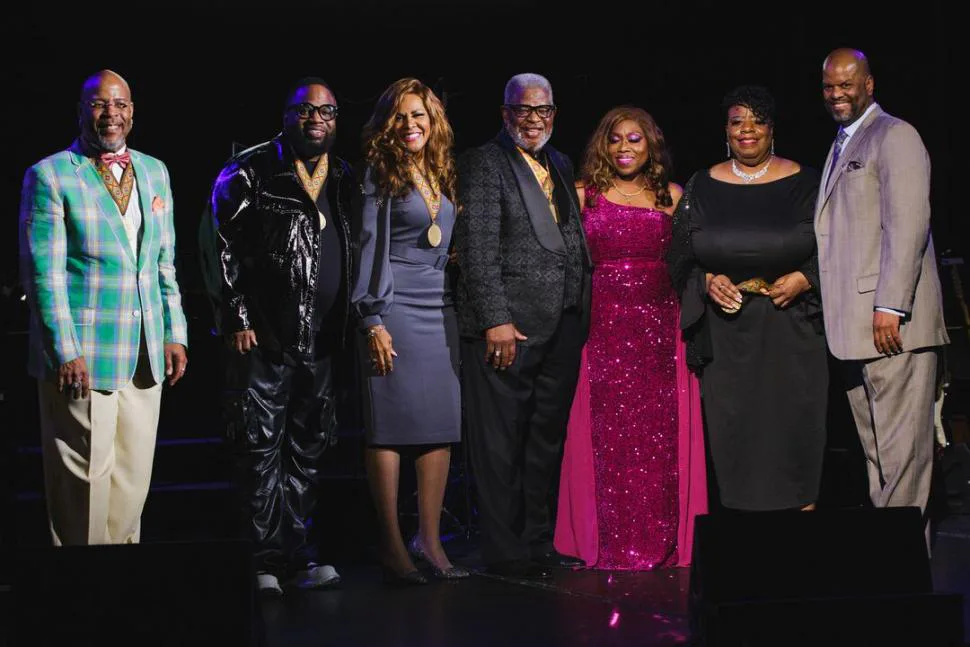
- This event has passed.
Berklee College of Music (Boston) announces the FIRST Gospel Music Degree Program

Berklee College of Music’s Africana Studies Division is launching a new degree program focused on Black music and culture, with a special emphasis on gospel music, starting this fall.
The gospel music curriculum will concentrate on three core areas: artistry, industry, and culture. The artistry component will explore the composers, musicians, singers, and various styles of gospel music; the industry aspect will address the business and economic facets of the gospel music industry within the broader music industry; and the culture section will examine the social and cultural origins of gospel music, tracing its evolution from the spirituals of enslaved people to its establishment as a distinct genre.
This degree program, developed over the past three years by Emmett G. Price III, the founding dean of the Africana Studies Division, in collaboration with Africana Studies Department Chair Dr. Michael C. Mason and faculty across Berklee and the Boston Conservatory, aims to merge music performance with historical and social context. The program will also incorporate business and industry studies, fostering innovation and entrepreneurial skills.
“Gospel music, rooted in the blues, negro spirituals, and Protestant hymnody, has not only shaped a powerful and emotive performance style but has also fueled a thriving sector of the entertainment industry, leaving a profound impact on cultures worldwide,” said Price. “From pioneers like Arizona Dranes, Sister Rosetta Tharpe, and the Rev. Thomas A. Dorsey, to contemporary artists such as Minister Kurt Carr, Donald Lawrence, and Kirk Franklin, gospel music has emerged as a beacon of hope, healing, and resilience globally.”
Since its establishment in 2021 with Price’s arrival, the Africana Studies Division has rapidly grown, introducing key initiatives such as the Berklee Gospel Music Hall of Fame, the annual Gospel Performance Summer Program, Gospel Week, and the Gospel Extravaganza concert.
To support the new degree program, the division has welcomed gospel music specialist David Freeman Coleman and renowned gospel scholar Dr. Teresa Hairston-Jackson to the faculty. They will lead courses that explore the social and cultural contexts of gospel music’s development in the United States, from the spirituals of enslaved Africans to the genre’s growth among their descendants.
Coleman, known for his work as music director and rehearsal pianist for productions like the Tony Award-winning “Porgy and Bess” and “Ain’t Misbehavin’,” will teach Gospel Music History 1 and 2: Artistry, Industry, and Culture. Dr. Hairston-Jackson, who recently completed a two-year residency as a visiting scholar at Berklee, will teach Gospel Music: Advanced Studies in Artistry, Industry, and Culture.
“We’re thrilled to offer this genre of music through both individual courses and a new concentration within the bachelor’s degree in Black music and culture,” said Mason. “This allows students to deeply engage with this unique cultural art form, from its origins to its global influence.”
Building on relationships within the gospel music industry, Price has become a founding member of the Gospel Industry Coalition. In July 2024, the department secured an internship for a student at the Stellar Gospel Music Awards in Las Vegas, with a goal of providing internships for all students studying gospel music within the division. Price and Mason also plan to expand the program’s reach to Berklee Valencia, Berklee NYC, and Berklee Online, positioning it as a global hub where performance mastery and academic excellence meet, reflecting the brilliance, resilience, and hope of Black culture.
“Dr. Emmett Price’s visionary leadership in creating this program demonstrates Berklee’s commitment to a holistic education,” said Dr. Hairston-Jackson. “This initiative represents cultural innovation and sensitivity. Gospel music, the foundation of American music, has influenced legends like Ray Charles, Aretha Franklin, and Elvis Presley. It’s time academia recognizes its significance, and I’m excited to be part of this transformative movement!”
